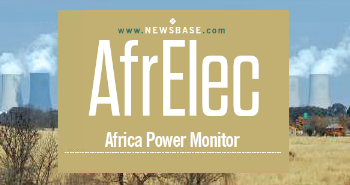AfrElec: Examining the risks of Africa going nuclear

African countries, like the rest of the world, have inevitably entered the energy transition. Mounting international pressure to drastically reduce the production of carbon dioxide (CO2) is forcing African countries to look away from coal and into renewables and nuclear power generation. While it is clear to see that Africa needs a solution for its energy needs, nuclear power may not be the best choice.
South Africa’s Koeberg nuclear power plant – owned and operated by state-run power utility Eskom – is currently the only NPP on the continent. However, at least seven African countries are at various stages in the roll-out of NPPs, with a majority targeting 2030 as a start-date for generating electricity from nuclear energy.
There are several reasons for this interest, with one being the growing energy demand that Africa faces. There is such high energy demand that many places in Africa experience regular rolling power cuts, for instance in South Africa, where ‘load-shedding’ has become the norm over recent years. However, some energy analysts believe that nuclear path for Africa presents certain risks.
If you would like to read more about the key events shaping the African energy sector then please click here for NewsBase's AfrElec Monitor.


Follow us online